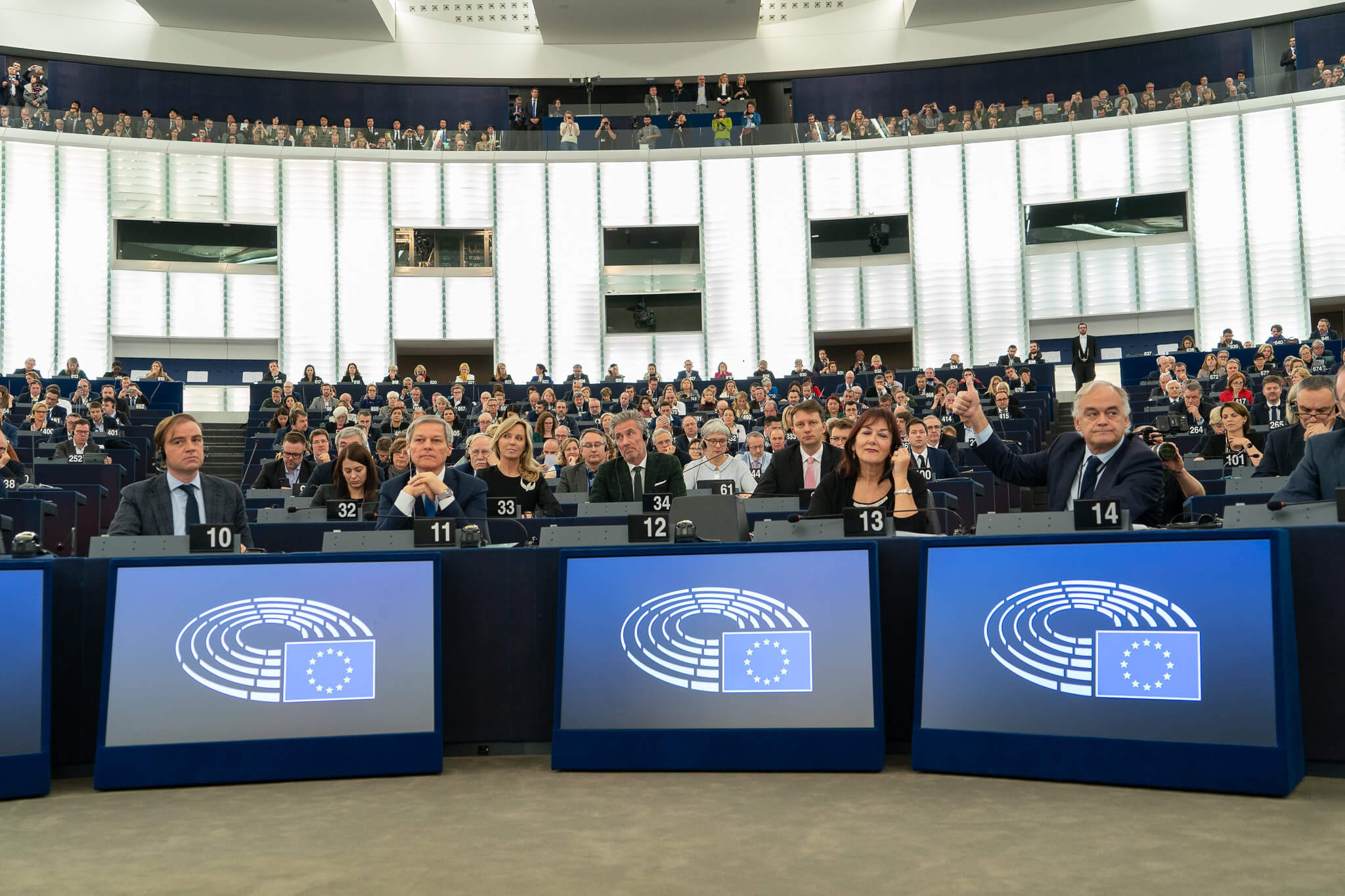Can the European Union Still Be Trusted to Regulate the Internet?

Section 230 of the 1996 Communications Decency Act in the United States is a transformative and meaningful regulation. Created to shield internet companies from liability regarding the content their users post, various scholars have credited Section 230 as responsible for the growth of the internet. It has been copied by other jurisdictions around the world, it has been a constant reference point in trade agreements, and it has become a paradigm for effective regulation. Europe’s General Data Protection Regulation (GDPR) serves as another example of effective internet regulation determining the way technology companies should handle user data. Taking advantage of the power and attractiveness of its internal market, Europe’s regulation of online privacy managed to instigate a necessary and unprecedented global conversation about the expectations users should have with regard to their privacy. Europe’s Digital Services Act (DSA) and the Digital Markets Act (DMA) are also expected to have a global impact, as Europe becomes the first jurisdiction in the world to present a comprehensive framework for content regulation, platform responsibility, and competition. These laws have cemented Europe’s position as the de facto global regulator of the internet.
Behind this set of pioneering legislation, however, lies a veil of another, less enlightened regulatory attempt by the European Commission: the “fair contribution” or “fair share” proposal, as it has ironically been coined. The proposed regulation is part of the initiative the European Commission has launched to transform its connectivity sector in order to address the dissatisfaction of telecommunications operators with increased volumes of internet traffic in recent years. The so-called fair share proposal is based on a desultory idea: Content application providers—such as Google, Amazon, Netflix, Microsoft, and Facebook—should pay a fee to European telecommunication providers (specifically, Spain’s Telefonica, Germany’s Deutsche Telekom, France’s Orange, and Italy’s Telecom Italia) for network infrastructure investment. According to the European Telecommunications Network Operators’ Association, there is a need for “swift policy intervention to help ensure that big tech companies contribute their fair share to growing the EU ecosystem, especially in the context of continuous data traffic increases.”
Anyone who has been involved in internet policy discussions will likely recall that this idea is not new. Ten years ago, the same group of European telecommunications companies attempted to promote the same rationale during the 2012 World Conference on International Telecommunications, a conference hosted by the United Nations’ International Telecommunication Union (ITU). Their proposal was rejected by the majority of ITU’s member states, including those of the European Union.
Despite the rejection, the proposal has made its way back to the forefront of current internet policy debates. The only reason the proposal has resurfaced is because of good timing. The current political environment in Europe indicates a general dissatisfaction with big tech. In the eyes of some European policymakers, U.S. big technology companies are making billions of dollars at the expense of European citizens and businesses, which telecommunications companies are taking advantage of. And perhaps most importantly, Thierry Breton, the European commissioner for the internal market and a former telecommunications CEO, has been more willing than his previous counterparts to support telecommunications companies. (For example, in 2014, then-Commissioner Neelie Kroes rejected similar proposals, famously telling telecommunication operators: “adapt or die.”) Given all of these factors, now may be the last real chance for EU telecommunications companies to push through the proposal that failed 10 years ago.
The Problem
The fact, however, that the EU Commission lets its own feelings toward big tech overrule logic is nothing short of problematic. Lacking a clear policy objective, the fair share proposal can take Europe back to a time when telecommunications companies enjoyed a monopoly over users’ communications channels. It was a time when certain players were in full control over the way information was transmitted from one point to another. It was a time when networks were full of single points of failure, which often caused significant disruptions to the detriment of users. It was a time when innovation was in the hands of a few actors who were determining how and when innovation would happen. And it was a time of high barriers to entry, top-down control, and centralization.
To this end, a major issue with the proposal is that it essentially attempts to regulate the internet like the telephone network. On the internet, no network is more important than another, and each network is independent and can make its own policies and rules. The only requirement to be part of the internet is for the networks to “speak” IP, which is essentially a protocol that allows different networks to connect and interoperate. The fair share proposal essentially considers telecommunications networks to be more important than all other networks and, therefore, deserving of special treatment (which, in this case, comes in the form of a direct payment). The internet, however, is nothing like the telephone network—its architecture is fundamentally different. Decentralization, interoperation, and open standards underlie the way networks communicate and, since there is no center of control, there is no single point of failure. Because of its decentralized framework, the internet is more “intelligent” in avoiding obstacles and ensuring the delivery of data packets than the telephone network. The proposal encourages such obstacles and, therefore, signals points of failure.
Simply put, the internet consists of many separately controlled autonomous systems or networks that can come together via shared protocols to form a global network, so that every device is able to exchange data packets with any other device that is willing to receive them. What is key in this structure is the willingness of both end points to communicate. With consistent functioning and interoperability on an end-to-end basis, end users are able to access applications and content irrespective of their location, the technology they use, or their service provider. The risk of deviating from this idealized notion of an open internet due to the weakening of the connectivity between willing end points is the core of fragmentation.
This is one of the various reasons the fair share idea has been rejected by the majority of European stakeholders and a number of member states have expressed concerns. Yet it persists and is a concerning departure from the EU’s pioneering regulation on privacy and platform accountability such as the DSA, DMA, and GDPR.
Exporting Regulation
The European Union is one of the largest global “exporters” of regulation. In other words, the EU has successfully externalized its rules to other countries via a combination of market mechanisms and unilateral regulatory globalization. For example, the EU has arguably managed “to extend to third countries the application of its fundamental values, including the autonomy of EU law, the rule of law, and fundamental rights,” in regard to the internet, particularly in data protection and privacy, internet governance, and private international law. While Europe may not have originally sought this role, it now seems to be embracing its position as the catalyst to shaping the internet’s future as is evidenced by the tsunami of its internet regulations, described above. This role is powerful and also carries the responsibility of striking the right balance between the need to impose rules and respect the rule of law while also preserving the open internet. It is a difficult task.
For the most part, Europe has done a decent job at striking this balance. However, Europe’s insistence on passing the proposal described above indicates an inconsistent agenda with shifting priorities. To the EU’s international partners, Europe’s biggest priority is fighting for an open internet, one where people (not large companies) sit at the center. This however, does not appear to be true for the EU’s domestic internet policy agenda. For example, last year Margrethe Vestager, the executive vice president for the European Commission, declared that “[t]he Internet is part of our daily lives. Faced with corporate power and state power, Europe’s approach to the Internet[] is based on a clear guideline: people’s power.” Her statement is ironic given that the majority of the “people” in question have rejected the proposal that the European Commission is trying so hard to codify into law. If, indeed, the EU is promoting a people-centric internet as part of its foreign policy, shouldn’t it do the same domestically?
This creates two sets of problems. In the long run, this kind of double standard can cause more damage than good to Europe. Proposals like “fair share” are making it increasingly difficult to present the European Union as the jurisdiction that can protect the open internet through evidence-based regulation. In the short run, though, and given the lack of any other competing regulation from any other country in the world, Europe will continue to be a global regulator, even when its ideas are poor.
A Global Trend
Europe’s proposal has attracted the attention of other countries. India, Brazil, and Vietnam are having conversations about network neutrality and questioning the way the interconnection market works and whether the model they use is “fair share.” Even though the first country to adopt the fair share model was South Korea, it was Europe’s decision to place “fair share” on its agenda that made the proposal a global trend. If the world’s third largest economy thinks undermining the internet’s openness is a good idea, then it must be—or so the thinking goes.
The policy reasons the European Commission gives for insisting on pushing this issue through are baffling, given the general consensus about “fair share.” It’s almost as if the executive arm of the EU has convinced itself that somehow Europe’s digital agenda will advance by submitting to the demands of telecommunications companies. Notably, there is a disconnect between the belief that “fair share” can address connectivity challenges and the real-life impact this policy will have on Europe, its citizens, and the internet, which will likely end up fragmented.
What Should Europe Do?
Europe is not afraid to explore regulation for the internet. Finding a way to regulate the internet will require courage and experimentation, and Europe has shown it has both. But regulation for the sake of regulation simply will not be successful. Internet regulation policies that focus on addressing concrete problems of competition and platform accountability are necessary. Reigniting a debate created from an issue because a very small fraction of influential stakeholders are unhappy is not.
Whatever the future of the fair share proposal is, the European Commission has lost a significant amount of its stakeholders’ trust. Many believe that if the proposal becomes law, it will create an unpredictable regulatory environment that will hamper private-sector investment. Why would anyone want to invest in Europe when the money ends up going to another private actor? Why would any (European) start-up want to grow if it ends up giving its money to someone else? To put it bluntly, “fair share” offers no incentives.
It will be hard for Europe to convince its international partners that the proposal works toward an open internet. Aside from the almost-certain tension this policy will create to the relations with the United States (given that it is singling out only U.S. companies), passing the proposal will incite a domino effect for the fragmentation of the internet in other countries following Europe’s lead. The European Commission is inadvertently normalizing fragmentation as a policy response and also provides the blueprint for how it can be justified.
Europe needs an open internet. It needs the collaboration of its stakeholders if it wants to compete with China and protect itself from Russia. Europe must not forget that no one can “internet” alone.


-1928c983-394b-444d-b1ec-f6590b7d9fee.jpeg?sfvrsn=78498e1e_7)
.jpeg?sfvrsn=773924a2_5)

